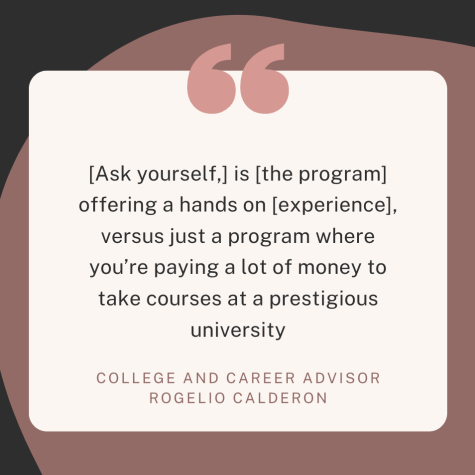Affordability in education
How money creates disproportionate opportunities for students
April 5, 2023
As wealth inequality in the U.S. grows, MVHS students feel the rippling effects of affordability in education. From the high costs of summer programs to vast amounts of college preparation activities, students are constantly reminded about the disproportionate opportunities due to wealth disparities.
In California, the price to participate in summer programs at prestigious universities including the UCs, Stanford University and the University of Southern California ranges from $3,000 to $10,000. The average cost for a private college counselor begins at $150, peaks at around $200 by the hour and can exceed $5,000 to $10,000 for all-inclusive college advice packages.
The immense costs of participating in summer programs and hiring college counselors further the division between the poor and the wealthy. While the thousands of dollars in program fees deter the middle and lower classes of students from participating, these programs are just another opportunity presented to more affluent students.
College and Career Advisor Rogelio Calderon shares that summer programs, advanced courses outside of school and other extracurricular activities are great opportunities for academically inclined students. He elaborates on how motivated students are able to capitalize on these opportunities to enrich themselves with knowledge that may not be found in courses offered by MVHS.
Money opens up more opportunities for students due to the costs of most summer and pre-college programs. However, he emphasizes that joining a summer program should help a student gain knowledge and experience rather than being an addition to their college applications.

“Admissions readers can typically tell when a student is doing it just for the college application process versus when they are doing it because they really are intrigued or they’re really interested or motivated by that activity,” Calderon said.
To accommodate for the major expenses required to participate in many summer programs, Calderon recommends that students and parents research specific pros and cons of summer programs and other outside resources to find what meets their student’s needs best. He adds that the vetting step is important because all programs and courses don’t meet the same needs of each student. Some can be vastly beneficial to one individual but also completely impractical for another.
“[Ask yourself,] is [the program] offering hands on [experience], versus just a program where you’re paying a lot of money to take courses at a prestigious university,” Calderon said. “Or is this person providing outside resources for you: Do they have any credentials in the admissions world? Are they guaranteeing you anything? [If they are,] that’s where you can feel a little bit more at ease of the financial cost.”
Junior Jennifer Long feels that the cost to participate in summer programs is unfair because although some programs offer financial aid, many students who qualify for the financial aid don’t receive it. She also stated that some students don’t meet the bottom line to qualify for financial aid but still depend on it.
“[Money] definitely plays a role because many people in Monta Vista think of SAT scores or GPA as our pride,” Long said. “Because a lot of people outside of Monta Vista don’t have the access to these resources, they are unable to get SAT tutoring for example or math tutoring. That could affect their academic standings.”
Sophomore Malek Shalluf shares that despite the peer pressure, he never felt the need to receive assistance from college counselors explicitly and doesn’t plan on reaching out to one in the future. He also believes that summer programs don’t particularly benefit him. When he finds something he is truly passionate about, he can learn by himself using the many online resources at his disposal.
 “I don’t think money [affects] students’ access to education at all because, at this point, anything can be found online for free in articles or YouTube tutorials,” Shalluf said. “If a student really wants to learn something, they could even learn on their own without any tools.”
“I don’t think money [affects] students’ access to education at all because, at this point, anything can be found online for free in articles or YouTube tutorials,” Shalluf said. “If a student really wants to learn something, they could even learn on their own without any tools.”
Shalluf feels the excessive costs for activities like summer programs outweigh the benefits offered with the learning and adding them to their college applications. He finds the idea of summer programs unfair because students are pressured to spend their summers participating in expensive programs, but simultaneously emphasizes that a student’s passion can go further than just participating in expensive programs.
“[I do feel some pressure] because it’s a common thing among all my friends,” Shalluf said. “And sometimes I feel like there are benefits that I don’t see to some of the extracurricular activities [that] I decided not to participate in.”
Sophomore Sanjog Dhillon shares that success in education depends on the student’s will to an extent, as he feels students who desire to learn can find resources to learn by themselves. However, he still acknowledges that tutors can be beneficial throughout the learning process, providing those who are privileged with a wealthier family an easier, more efficient path to learning.
“Money definitely [plays] a big role in areas of low income especially,” Dhillon said. “I’ve known many people that were simply not motivated academically because their parents were always at work and spending money [on] basic items [that] were already really costly, so spending money on extracurricular activities is often out of the question for these kids. Because of this, the students aren’t really motivated academically and just don’t have the guidance and interest that is gained by engaging in these activities.”
Long agrees that despite the opportunities money can get someone, the determination of a student will supersede the tutoring that money can buy. She feels that a student’s success is far more dependent on their will over their wealth.
“To an extent [money] may [provide advantages], but also to an extent [it does not] because as long as you work hard, then you’ll do fine,” Long said. “It’s not like getting tutoring [is] what makes you succeed — getting the tutoring only will guide you, but you succeed not based on having the money for tutoring or having the money for extracurricular studies.”

















